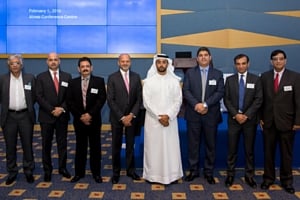Financing the trade of food was key on the commodities agenda today as DMCC, the authority on trade, enterprise and commodities in Dubai, launched its inaugural Dubai Food Trade Finance Forum.
Aimed at addressing key issues facing the industry, and establishing solutions to move it forward, the forum brought together stakeholders from the banking and food trade communities and facilitated dialogue. Discussions focused on stimulating SME lending within the food commodities market and exploring new methods in the current credit environment.
The event was developed in close collaboration with the Dubai Food Trade Advisory Group which comprises of key representatives from multinational trading firms, SME trading companies, financiers, and logistics operators.
Gautam Sashittal, Chief Executive Officer of DMCC, commented: “We see tremendous growth opportunities in the food commodities sector and our mandate at DMCC is to facilitate that growth. We wanted to bring everyone together today to discuss challenges and present alternative solutions so industry players can trade with confidence. We believe that this is a collaborative effort, and our discussions today are centered on how the banking and the trading sectors can re-calibrate their business approach to better respond to current market trends.”
It was full house at the Dubai Food Trade Finance Forum with the participation of over 50 SMEs from the food trading sector, along with representatives from leading financial institutions, including Emirates NBD and National Bank of Fujairah. The first panel discussed how to rebuild trust in SME lending, looking at what banks can do to better understand the needs of SME food traders, and highlighting changes that food trade SMEs can make to be more attractive to lenders. Solutions were proposed to improve transparency and reporting mechanisms, and the panel considered securitised lending alternatives and the need for specialised commodity financing products tailored to the needs of the food trade.
The second panel focused on alternative sources of trade finance from non-banking institutions such as collateralised lending, receivables financing, and trade finance from investment funds. Panellists gave step-by-step guidance on how to access products such as the DMCC Tradeflow and practical examples of the range of issues that SMEs can address to prepare their businesses to from these alternatives.
Mr Sashittal concluded: “At DMCC, we believe in trade and enterprise which is why we continue to create new marketplaces and host events such as The Dubai Food Trade Finance Forum.”
